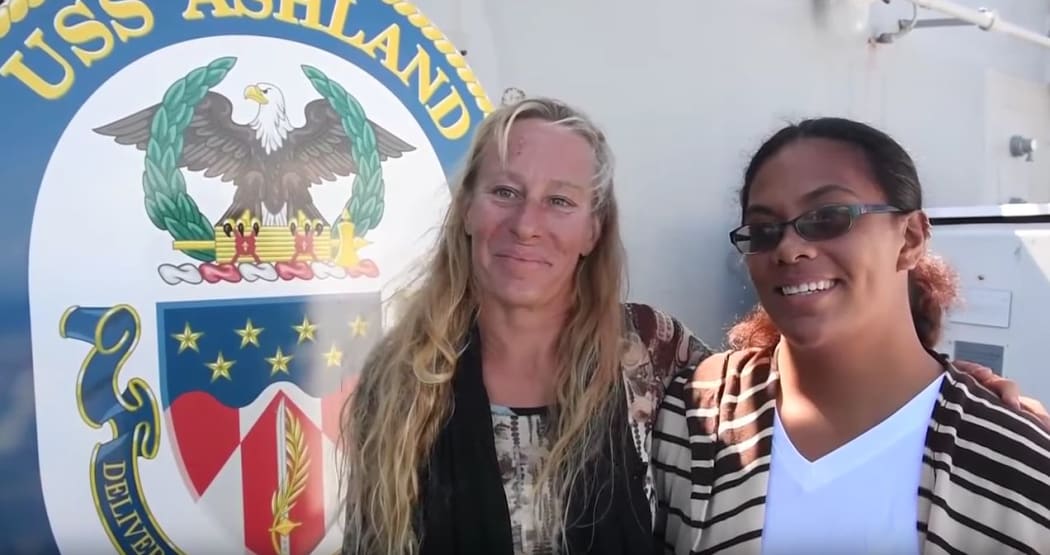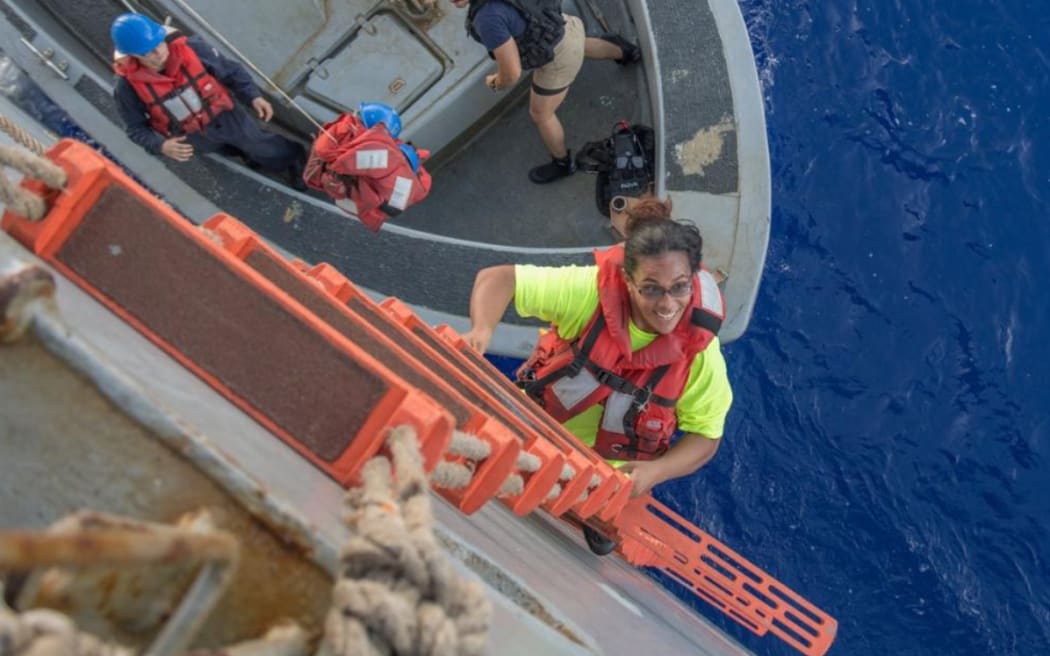Doubts have emerged about the survival story told by two US women who said their lives had been saved when they were rescued by the navy after spending five months adrift in the Pacific.

Jennifer Appel, (left), and Tasha Fuiava on the USS Ashland Photo: US Navy
The US Coast Guard said that neither Jennifer Appel nor Tasha Fuiava activated an emergency beacon onboard.
There appear to be inconsistencies in other details of their story as well.
The pair said they became adrift in May when their boat's engine failed as they headed to Tahiti from Hawaii.
They said the boat was without power or communications in the open seas about 1,500km south-east of Japan before a fishing vessel alerted US authorities to rescue them last week.
The pair, travelling with two dogs, had strayed significantly from their planned course.
Ms Appel later said that she and Ms Fuiava were "incredibly lucky" to survive because they were running out of food and had endured a tiger shark attack.
US Coast Guard spokesman Lt Scott Carr said that interviews with the two women - coupled with a Coast Guard review of the incident - revealed that the pair had an Emergency Position Indicating Radio Beacon (EPIRB) aboard, but did not turn it on.
Such devices emit a distress signal to help rescuers find vessels in an emergency.
It is unclear why the women did not do this if they were in distress, and there is no suggestion they did not know how to work the EPIRB - or that it was faulty.
The women later said that they chose not to activate the EPIRB because they never feared their lives were in imminent danger.
He said that contact was made after the pair claimed they had lost use of their engines and sustained damage to their rigging and mast because of a storm.

Tasha Fuiaba, pictured, and Jennifer Appel set off from Hawaii in May. Photo: US Navy
The pair said the tropical storm they encountered took place on their first night at sea in early May, and lasted for three days.
But National Weather Service records reportedly show there were no such storms in the region during that time.
There have also been questions as to why the two dogs travelling with the women were in such good health if they were really engaged in a struggle to survive.
In addition critics have asked why the women did not use distress flares or stop at various islands on their route - including Maui, Lanai and Christmas Island - to get help.
The Coast Guard is continuing to review the case.


